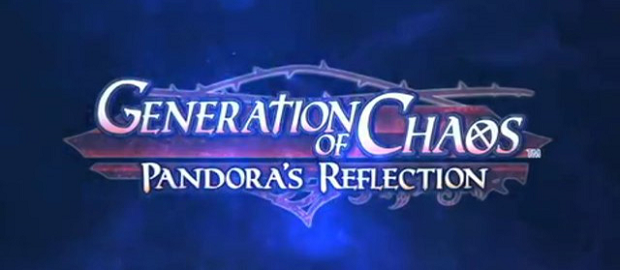There’s a lot you can tell from the title of Generation of Chaos: Pandora’s Reflection. Chances are, you’ve already guessed it’s Japanese, an RPG, and more than a little weird. Mix this with the fact that it’s technically a PSP game (yes, a PSP game released in February of 2013) and you’re probably ready to ignore everything I have to say. But, that would be a disservice to you and the game. Pandora’s Reflection is a somewhat dated, yet still entirely enjoyable game, that provides some satisfying real-time strategy combat.
Players will find themselves in the role of Claude, a dark-haired, anime stereotype trying to protect his sickly sister, Yuri. The two are exploring the world of Hades, which is rife with political turmoil. Nobles and religious leaders alike are exploiting the poor, and much of the society is ravaged by disease. As you progress, you uncover the secrets behind the sickness Yuri is inflicted with, and the power of her mysterious butterfly tattoo.
The premise itself is easily the weakest part of Pandora’s Reflection. Within the first few battles, the story sprints along at mach speed, leaving the player behind in a confused fugue. Terms are thrown out one after another, with no context given whatsoever. This eventually leads to dramatic scenes which are supposed to hold some sort of weight, but almost always end up falling flat. Multiple games have come before in the Generation of Chaos line, which I haven’t played, and this may play a part in my lack of understanding. But a frame of reference wouldn’t change the overall quality of the story. Characters are still one-dimensional, and any attempt at development usually comes across as ham-fisted and forced.
Story faults aside, the actual gameplay can be very satisfying. Players will progress through battles, which are controlled from the familiar top down perspective the genre is known for. At the start of combat, you pick a select few characters to dispatch. They then traverse the landscape, in hopes of taking over nodes, so more units may be summoned. Strategy becomes key, as different characters move faster in different environments, with some flourishing in forests, swamps, castles, etc. Considering all units are acting simultaneously, this can make or break an encounter.
Goals are usually simple, with win conditions mostly involving the absolute elimination of enemy troops. Once players actually encounter enemies, battles play out similar to games such as Fire Emblem, as both units appear on screen and duke it out with a rock-paper-scissors style of weapon classification. The twist here is the added rhythm element. When attacking, a series of orbs will appear, and players must time a series of button presses with the pattern as they light up.
This affects how far back the enemy unit will be pushed on the map after the encounter, allowing those who learn the skill to really control the pace of battle. Pandora’s Reflection slowly introduces siege weapons and other mechanics, which can drastically alter the tide of battle.
As complicated as that might sound, it’s very easy to learn. New mechanics are handed out at a manageable pace, and within an hour or two, you’ll be jumping around the map giving a constant stream of orders. Also, unlike some of its contemporaries, battles aren’t excessively long. Most don’t last more than ten to twenty minutes, making the game actually playable in a portable sense.
But, Pandora’s Reflection isn’t all sunshine and satisfaction. As I mentioned in the opening, this is a PSP game, and it shows. Visuals during combat aren’t bad, but played on a Vita they can look blurry and stretched. The story is also told entirely through talking portraits, with Japanese as the only available voice work. It’s as bare bones of a port as one can imagine.
Mix this with a somewhat forgettable score, and you get a game that lacks the extra polish to achieve greatness. It looks and sounds like a PSP game, which is clearly apparent, especially since we’ve had the console’s successor for over a year.
Generation of Chaos: Pandora’s Reflection could have possibly done much better a few years ago. Releasing in a time where its competition is steep, it’s hard to argue playing Pandora’s Reflection over other titles. But it does scratch a very specific itch. If you’re the type that can get passed a useless story, and are looking for some satisfying active-time strategy combat, the $19.99 price tag is a reasonably low barrier to entry. Pandora’s Reflection isn’t great, but it can be damn fun.
Generation of Chaos: Pandora’s Reflection was developed my Sting and Idea Factory and published by NIS America. A PSN copy was provided by the publisher for review purposes.



